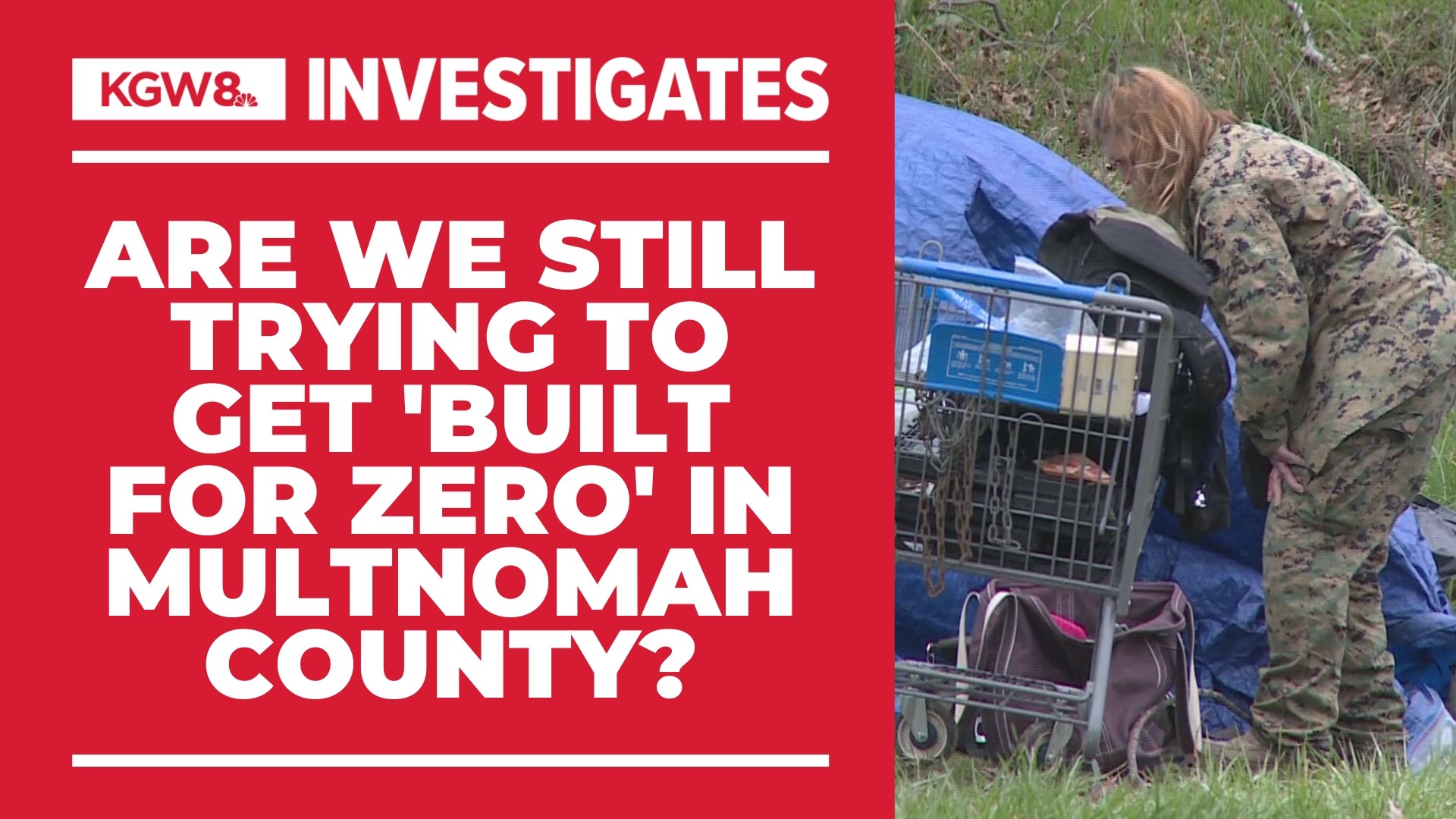PORTLAND, Ore. — The idea sounded simple enough — create a by-name list of every homeless person in Portland so they can be matched with resources like mental health, addiction treatment or rent assistance.
It was Portland City Commissioner Dan Ryan who first pitched the idea to city and county leaders. "Are we all in?" he asked during a February 2021 meeting to address homelessness. The group, including Portland Mayor Ted Wheeler and Multnomah County Commissioner Sharon Meieran, agreed to push forward.
It's been more than two years since that meeting. So, does Portland have a comprehensive list of people experiencing homelessness?
"We’re not nearly there. We do not have a by-name list and we need one," Meieran told KGW. Meieran, a strong proponent of the by-name list, admits the project got off to a very slow start, especially during the first few months.
"There was a whole lot of pausing," she said.
There has at least been some progress on a portion of the list. In April, the city-county Joint Office of Homeless Services released its first monthly data report, focused on a specific subset of the homeless population — the chronically homeless.
Currently, the program has a list of roughly 2,800 people who are chronically homeless, which means they're disabled and have been homeless for at least a year, or repeatedly over the past three years. But the current list does not include the entire homeless population — only that subpopulation.
"We're not trying to just build a list for the sake of a list. We're trying to get information to move people toward services," explained Lori Kelly, planning and evaluation manager with the Joint Office.
The by-name list initiative, tapping into a national initiative called Built for Zero, is intended to collect real-time data — including the names of people experiencing homelessness and details about their history so they can get the help they need.
"Like an ER. What information do you need to triage this person to the right intervention that will end their homelessness?" explained Beth Sandor of Community Solutions, which coordinated Built for Zero.
The detailed, personal data helps communities know what's working and what's not. They can track if someone found housing or returned to the street. The idea is to make systems smarter by understanding exactly who is being helped and what they need. The strategy also helps communities coordinate services.
Built for Zero currently has 105 communities participating around the country, and 44 of them have seen a measurable reduction in their homeless population, according to Built for Zero coordinators. The national network allows communities to share strategies, and the data helps them improve performance.
Unlike the federally mandated Point in Time Count, which provides a snapshot of the number of homeless in a community on any given night of the year, the by-name list produces person-specific data, making it more accurate and a better measure of the progress and success of homeless programs.
"On average, we see it take communities six months to a year to get to quality data, depending on the size and complexity of their environment," explained Sandor.
The Joint Office said it's been working to create quality data and a system that works — which takes time. Portland is one of the largest communities participating in Built for Zero.
"The challenge around getting data is that they're people. So, effectively you're really needing to engage with human beings and understand what their needs are," explained Kelly of the Joint Office.
While the initial list of chronically homeless is a start, Commissioner Meieran warns it was created using data that already exists in a database that collects information from those seeking federally funded HUD services.
"We're using our old list. We're not reaching out to know who we don't know," she said.
That's the next step. In the coming months, outreach workers will conduct surveys. They hope to add new names, including those who may not be in existing databases. As a result, the by-name list of chronically homeless will grow and, in theory, more people living on the street will get the help they need.
This report is part of a series looking back at various proposals aimed at providing shelter, housing and support for Portland’s homeless. KGW is tracking what kind of progress has been made. Are there any projects, big or small, that left you wondering, “What ever happened?” Email investigative reporter Kyle Iboshi with your story ideas at kiboshi@kgw.com

